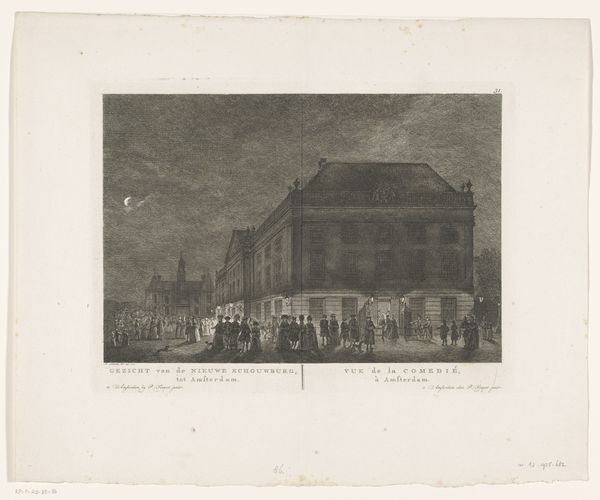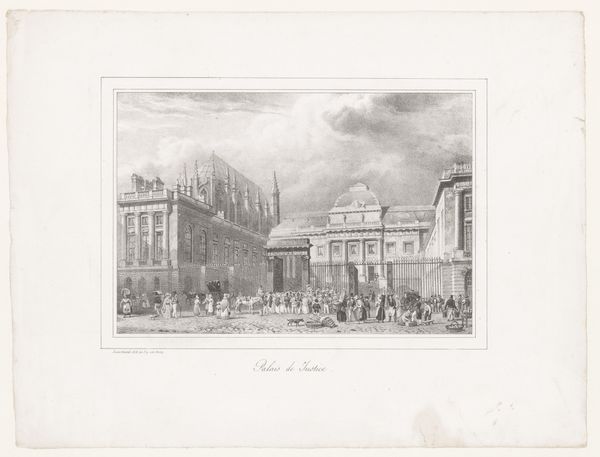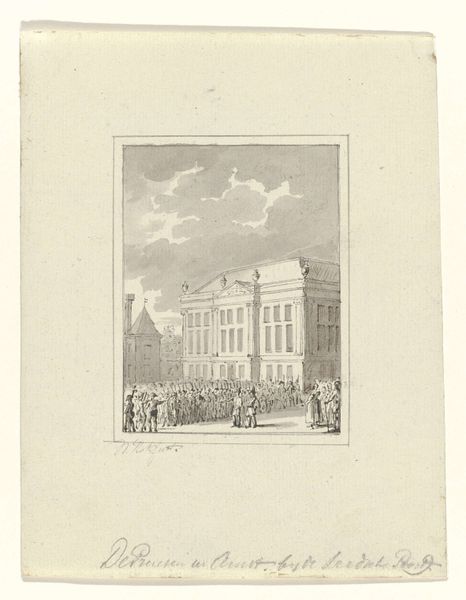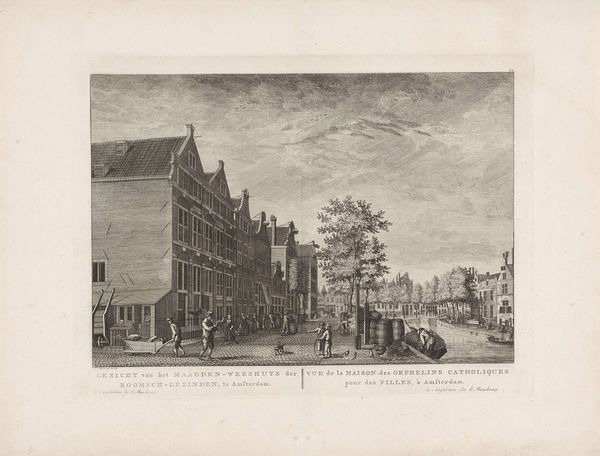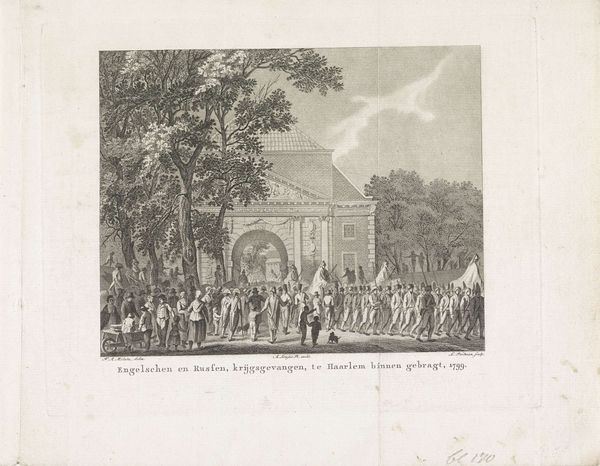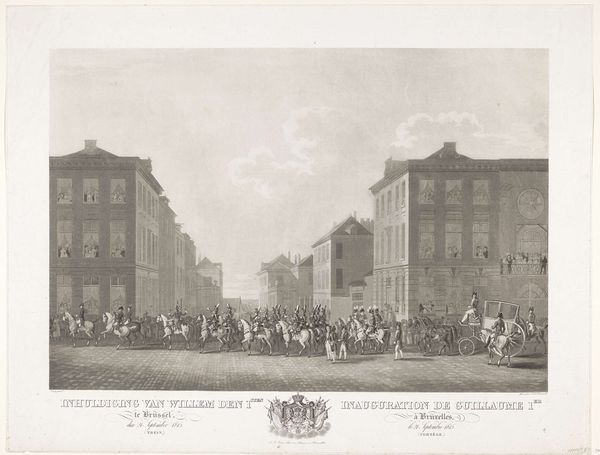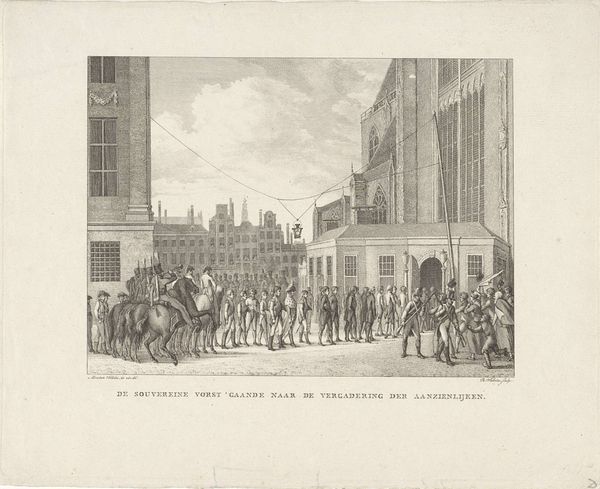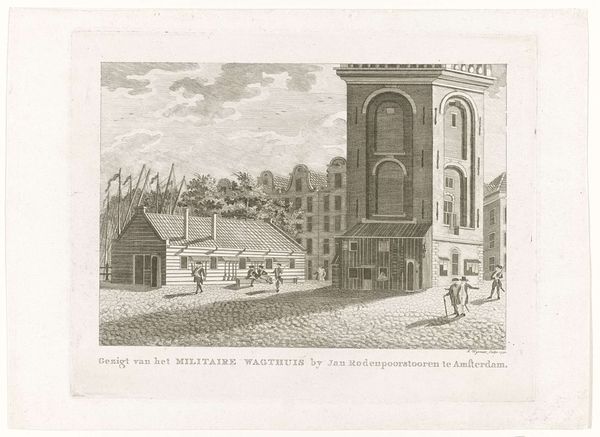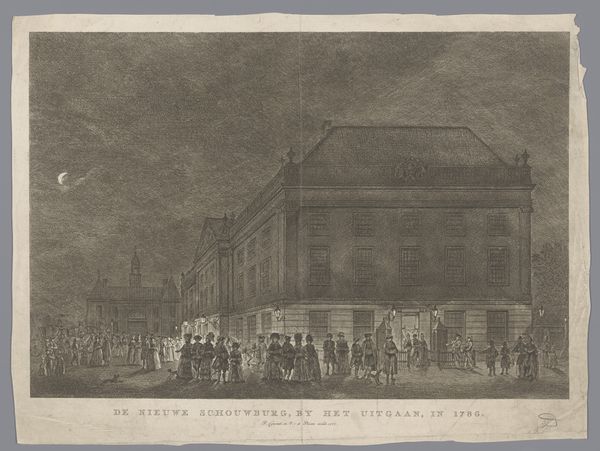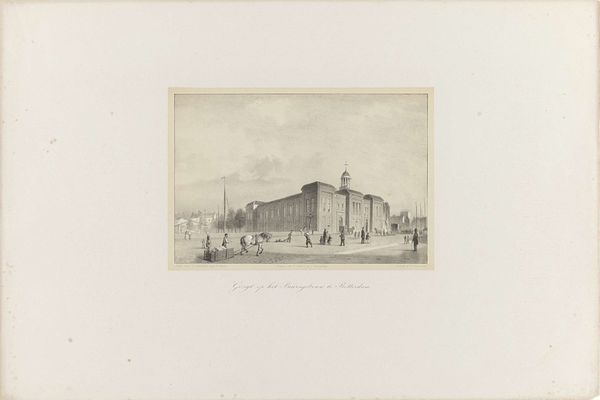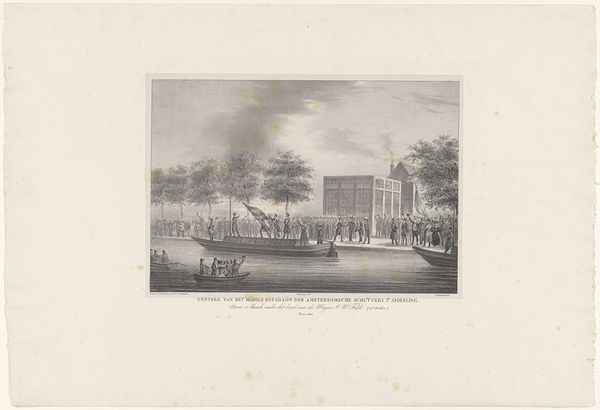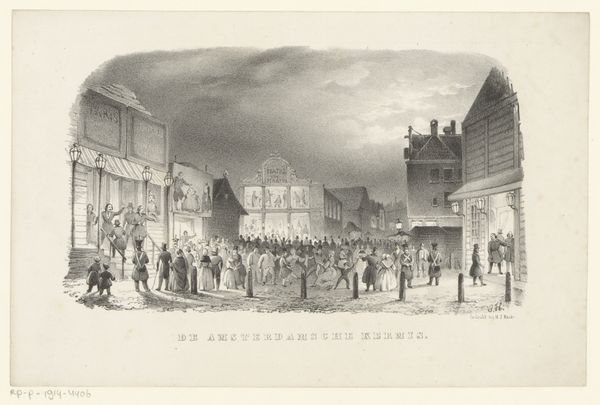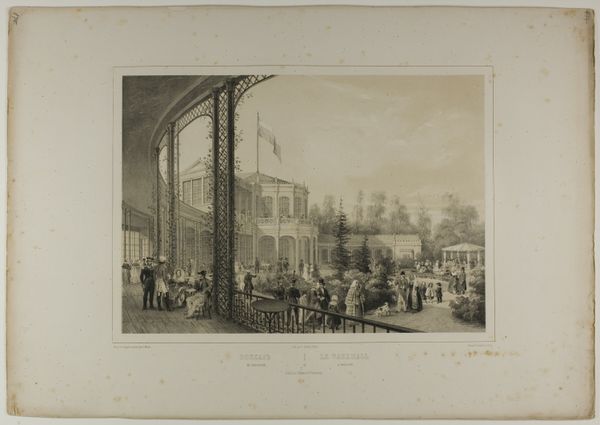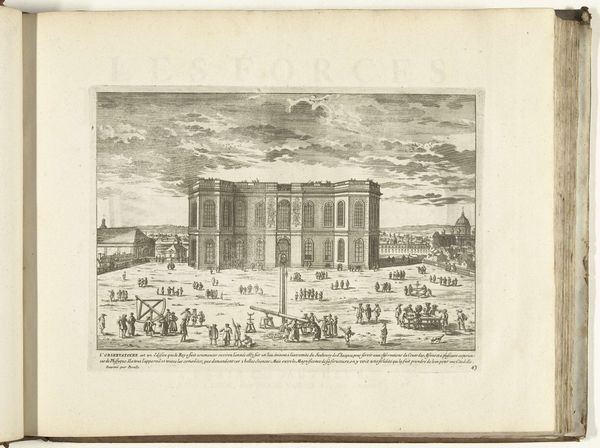
Gezicht op de Amsterdamse Schouwburg op het Leidseplein bij avond 1774 - 1783
0:00
0:00
hermanuspetrusschouten
Rijksmuseum
print, engraving
#
neoclacissism
# print
#
cityscape
#
engraving
Dimensions: height 264 mm, width 355 mm
Copyright: Rijks Museum: Open Domain
This print shows Hermanus Petrus Schouten’s view of the Amsterdamse Schouwburg, made using engraving techniques. It’s a testament to the labor-intensive process of printmaking in the 18th century. Engraving involves carefully cutting lines into a metal plate, inking the surface, and then using a press to transfer the image onto paper. Schouten, born in 1747, would have likely trained in these methods. The fine lines and detailed shading of the print highlight the impressive skill that Schouten possessed. The architecture and the gathering crowd outside the theater are depicted with precision. The use of engraving allowed for the mass production of images, making art more accessible to a broader audience. This reflects the growing commercialization of art, catering to the tastes of the bourgeoisie. Here, the process of engraving intertwines with the social context of a thriving cultural scene in Amsterdam. It emphasizes the value of skilled craftsmanship in a society that increasingly recognized the economic potential of art.
Comments
No comments
Be the first to comment and join the conversation on the ultimate creative platform.
